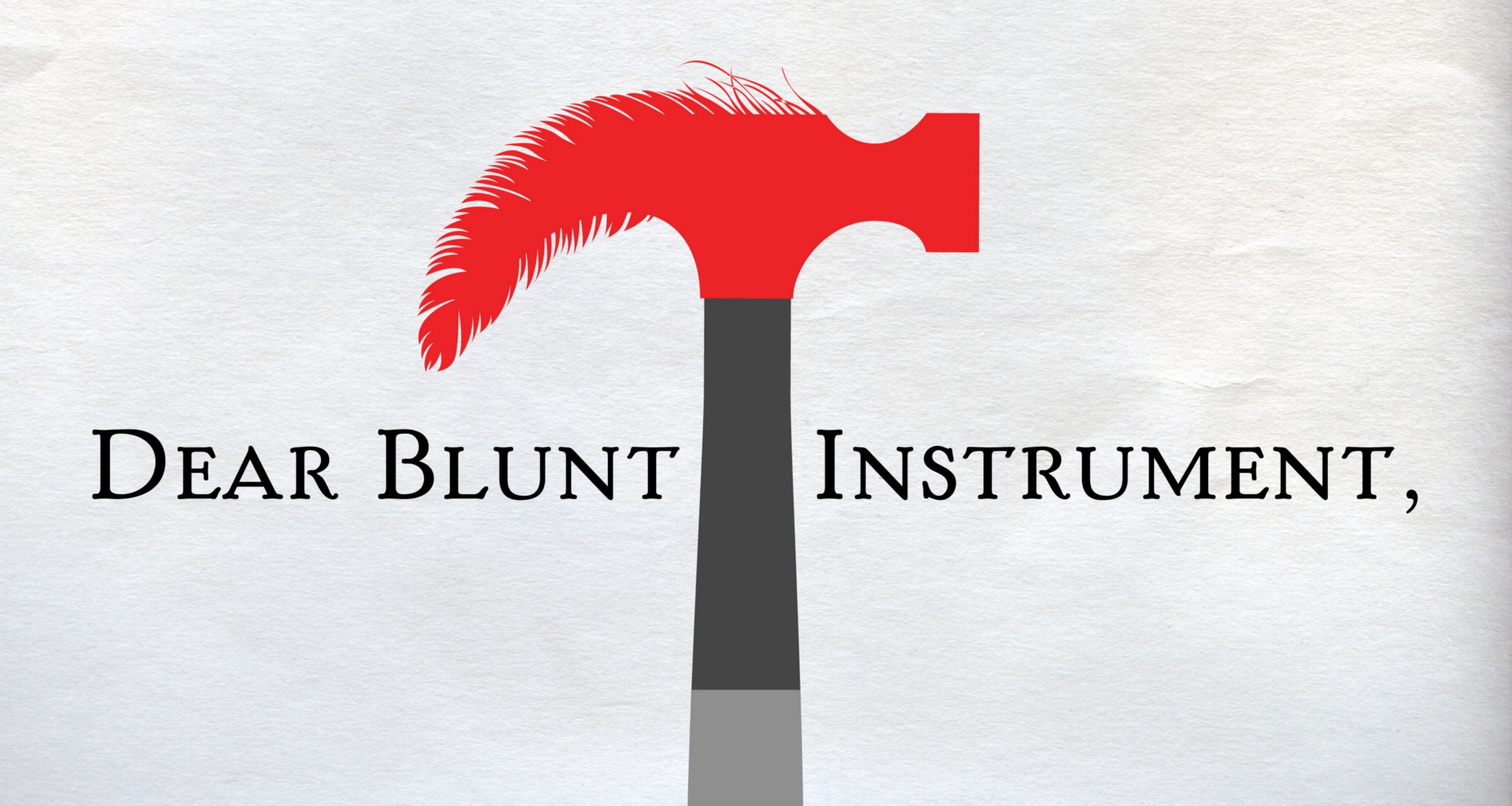Advice
How Do You Even Get Started Writing a Book?
The Blunt Instrument, our advice column for writers, on taking your first steps towards publication

The Blunt Instrument is an advice column for writers. If you need tough advice for a writing problem, send your question to blunt@electricliterature.com.
Dear Blunt Instrument,
I’m a writer in Denver. I’ve freelanced a little bit for Westword and covered coffee and booze for a publication called Sprudge, but really I’d like to write books.
I’m working through a draft of something right now but am unsure if working on it on my own and then taking it somewhere is the correct approach, or if there even is a correct approach. Do you have any thoughts? I don’t even know how to approach a publisher, and am unsure of when the best time to do it would be.
Ben
Note: This month, the Blunt Instrument welcomes a guest columnist, the novelist, essayist, editor, and instructor John Cotter.
Dear Ben,
Congratulations on the publications (Denver loves its drugs) and on commencing the Great Work of summoning a book from thin air. What’s next depends on what kind of book you’re writing. Sit back, pour some booze in your coffee, and let’s figure it out.
If you’re writing a novel, you won’t want to approach a publisher until the book is finished and polished to a blinding shine. If you’re still in the drafting stage, don’t worry about approaching publishers now. Same goes for agents: because most agents are so swamped with manuscripts they can barely find time to panic, you’ll want to avoid bugging them until your own manuscript is as unimpeachable as it can be. If that sounds like a long time from now, rest assured that, yes, it is but a) it’ll go by fast, especially if b) you’re spending the time on a project that excites you. Make sure this is the novel you really want to spend at least two to five years writing, then write it, reading a ton of other novels in the genre as you go and studying how they’re constructed with care.
Make sure this is the novel you really want to spend at least two to five years writing, then write it.
If you’re writing a collection of either essays, stories, or poems, you’ll want to sharpen up the best of them and start submitting to magazines. Publication can attract notice — an agent may contact you, though you shouldn’t sit around waiting for it — but either way, publication makes you seem more professional, more in-demand, the sort of person worth taking a risk on. If your book is a collection of essays, this will require writing pitch letters, which you can learn more about here, here, or here.
If you’re writing a nonfiction book, like, say, another much-needed history of craft cocktails or the weed boom, you’ll want to start with a rough outline, and gradually work that into a formal proposal to send along to an agent. Formal proposals can run from 50 to 70 pages in more-or-less five parts: an introduction, market details, biography, a chapter outline, and a couple of sample chapters. Your introduction hooks your reader (your prospective agent, who wants to be hooked both for their own sake and for the sake of future readers) and makes the subject of your book seem important; show that you command the field, know what’s been thought and said on the subject, and that your own perspective is unique. Market details make clear that people will buy your book because it’s the kind of book that people buy — accordingly, if there are recent bestsellers in the same vein, mention them here. If you have literary connections, drop those names. Your biography is a list of accomplishments and qualifications. If you’re good-looking, include a picture. There’s some more advice on writing a proposal here.
Those are the broad strokes. It’s tricky to do this alone. Community is important — if often fraught — for writers at every stage. There are a few ways to hack it, which I’ll abruptly gloss herewith:
Writing guides. The most useful and most fun writing guides I’ve read are Howard Mittelmark and Sandra Newman’s How Not to Write a Novel, which will teach you to follow the rules (“giving the reader a sex scene that is only half right is like giving her half a kitten” — half a kitten is not better than no kitten), and Lance Olsen’s Architectures of Possibility, which will teach you to break those rules.
A writing group. If you know a couple of sharp and thoughtful readers, why not start a writing group? It gives you someone to share your work with and talk shop. Writing is an act of communication — readers are necessary to complete the circuit. Meet once a month or so and share. Be kind to one another.
Note: do not start a group with any old yahoos who happen to write — if they’re not also very good readers they won’t help you. If you know good readers but those readers aren’t writers, consider a favor exchange: repair the siding on their cabin or make them dinner or critique their podcast in exchange for feedback. This actually works. I helped a friend with grad school applications and in exchange she built me a desk.
Do not start a writing group with any old yahoos who happen to write — if they’re not also very good readers they won’t help you.
Classes. An MFA is a good way to make connections. But most MFAs are morbidly expensive and that debt can dog good writers to their graves. If you already have a great deal of debt then it’s not a realistic option — some of us didn’t get an MFA and write fine. Further, the last twenty years have witnessed an uncanny rise in the number of writing centers around the country: Grub Street in Boston, Lighthouse in Denver, Hugo House in Seattle … the quality of instructors at such places is often identical with what you’d find in MFA programs, and writing centers are cheaper. There, you can order classes or consultations à la carte.
You’ll notice there’s one thing I haven’t talked about so far, and that’s actually writing your book. This is the part of the business that happens alone, in the quiet of your home or the library or a coffee shop. You don’t have to work on your book every day, but if you never work on your book, then your book will never be written. About this part of the process I’ll give you one piece of advice: writing is like dreaming. What I mean is you don’t fall asleep the moment your head touches the pillow each night, and even if you do you don’t start dreaming right away. Give yourself twenty minutes or whatever to dally, strike out with false starts, read a little poetry, play a Cat Power song or two while you stare at the tree outside. It takes time. Just as you find trouble sleeping some nights, especially when anxious, so your creative mind needs some time to find its preferred orientation: relaxed but attentive. Take the time you need to find that space. Then begin.








